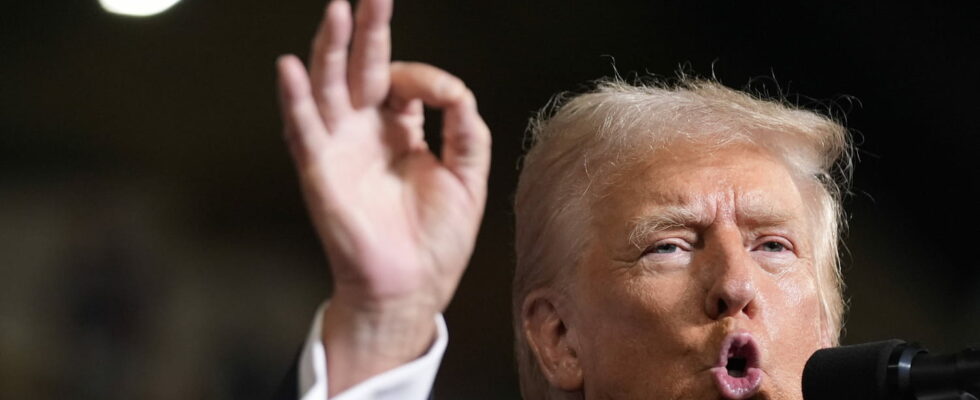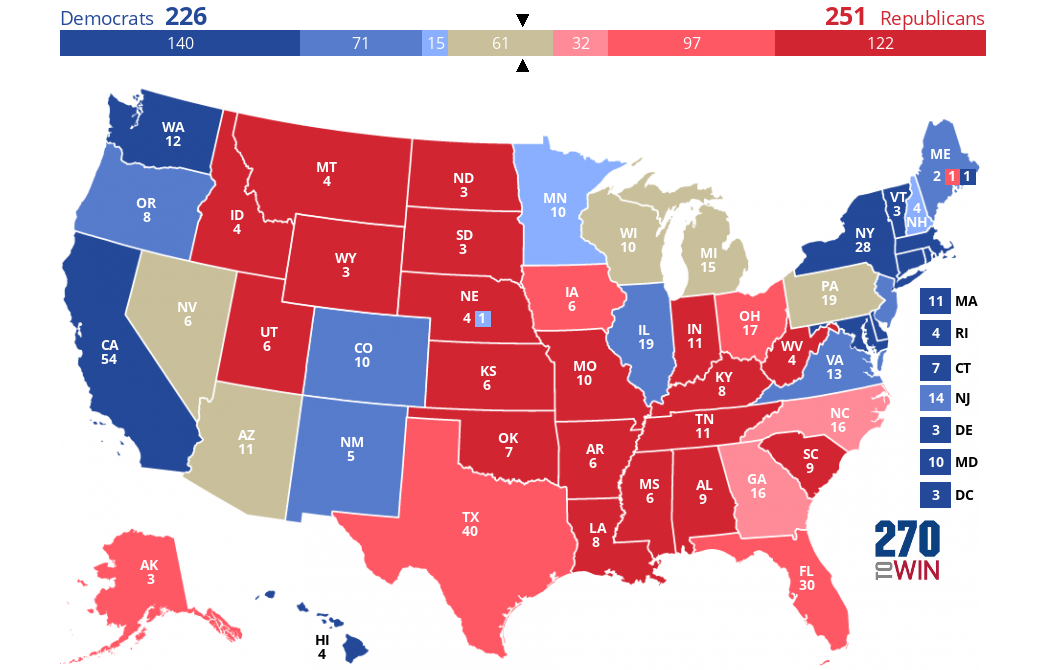As he hopes to secure a second term in the White House, Donald Trump is making a series of convoluted statements, particularly against his potential opponent, Kamala Harris. At the same time, the polls are tightening.
Officially invested by the conservative Republican Party, Donald Trump wants to win a second term, something he failed to do in 2020. “I promise to be the president of all of America, not half of it,” he said on July 18, at the Republican National Convention in Milwaukee. And this time, Donald Trump is set to face Kamala Harris, after the withdrawal of Joe Biden of the race for the White House, even if the candidate supported by the current tenant of the White House will have to confirm her investiture at the Chicago Convention from August 19 to 22.
And this major change in the campaign for the American presidential election has already hurt Donald Trump. Indeed, the gap in the polls – even if Kamala Harris is not officially a candidate – is narrowing between the former president and Joe Biden’s protégé. While the real estate tycoon had distanced the Democratic camp after the assassination attempt on him on July 13, using the image of the martyr, it would seem that the situation is completely reversing. Indeed, the latest studies published in July place the Republican and the Democratic candidate Kamala Harris neck and neck and estimate that the match could be close in the “Swing states” – these states that are used to changing sides and determine the outcome of the election. The latest polls even place the Democrat ahead of the American billionaire in terms of voting intentions, and not in the Swing states: 46% against 44% according to the latest Economist/YouGov poll, published on July 31, 2024.
Confusing remarks that could harm Donald Trump
In an interview with the conservative Fox News channel, Donald Trump did not hesitate to question Kamala Harris’s skills, indicating that her foreign counterparts would “walk all over her” if she came to power. On Wednesday, July 31, he accused her of having “become black” for electoral reasons, during an exchange with African-American journalists in Chicago. “She was Indian through and through and all of a sudden, she changed and she became a black person,” he declared. Words that were “divisive and disrespectful,” Kamala Harris insisted on responding.
As a reminder, born to a Jamaican father and an Indian mother, Kamala Harris is the first black woman and woman of South Asian origin to aim for the presidency of the United States of America. She defines herself as a “black woman”. A few days earlier, on July 26, Donald Trump had already found himself under fire from critics. In front of conservative Christians, he had declared that “in four years, you won’t have to vote anymore. We will have solved the problem so well that you won’t have to vote anymore”.
Donald Trump leads in swing states
The gap is narrowing between Donald Trump and Kamala Harris in the polls conducted in July. The compilation of the latter gives the Republican with 48% of favorable votes, against 47% for the Democrat. But these national figures are less telling than the trends in each State. The American presidential election is an indirect vote: American voters vote and elect electors who are more or less numerous according to the population rate of each State (the more inhabitants there are, the more electors there are) and the latter vote for a presidential candidate. When a State is won by the Republicans or the Democrats, all its seats are allocated to a single candidate, and it is this number of seats that counts to be elected. You have to win at least 270.
While some states historically and systematically vote for the same camp, others called “Swing states” vary according to the elections and often determine the outcome of the vote: these are Texas (38 electors), Florida (29), Pennsylvania (20), Ohio (18), Georgia (16), Michigan (16), North Carolina (15), Arizona (11), Wisconsin (10) and Iowa (6). These are the states that have a lot of electors that must be won. And for the moment, according to 270towin, Donald Trump is leading in most of them.

